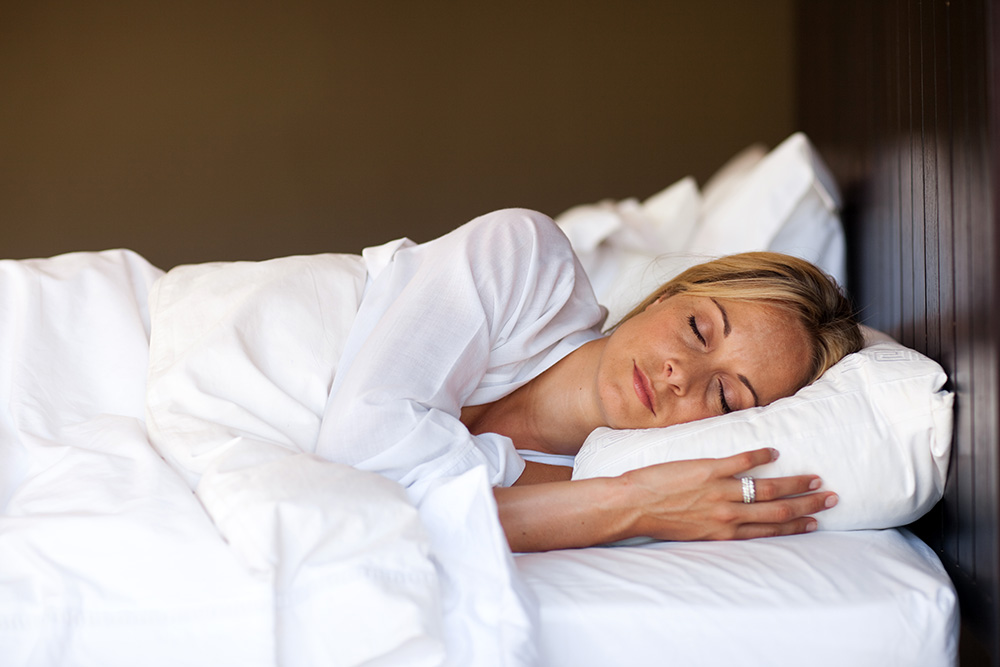Many individuals suffer from the effects of nighttime teeth grinding termed sleep-related bruxism by an internal medicine sleep doctor in Fort Lauderdale.
This condition can result in tooth and jaw-related pain and discomfort along with wearing down and damage to the tooth enamel of impacted teeth.
Fortunately, there is an effective treatment for bruxism that should be started sooner rather than later to catch and stop the progressive tooth damage that this unwanted sleep-related medical condition can cause over time.
What is Sleep-Related Bruxism Anyway?
Sleep-related bruxism occurs when an individual grinds their teeth while asleep. Since the person is sleeping when this tooth grinding occurs, the condition can go undiagnosed and untreated for a very long time. This health condition results in unwanted symptoms such as tooth enamel wear and tear, chips on the teeth involved, debilitating jaw discomfort, typically felt when the person first awakens, and other issues. Sleep-related bruxism is best treated by a knowledgeable sleep doctor familiar with the condition.
What Are the Possible Causes of Bruxism During the Night?
At the present time, the exact cause of nighttime bruxism remains largely unknown, but there are some contributing factors that can help diagnose this common health problem. The condition is more common in younger children than in adults. Most children will outgrow this condition without treatment. Some will experience bruxism during their adult years. Some contributing factors for this issue include ongoing stress, underlying anxieties, other psychological disorders, genetic related factors and some physical conditions like migraines and other headaches, certain physical disabilities impacting the head, mouth, and jaw, and temporomandibular disorders along with others.
Are There Any Reliable Treatments for Bruxism That Happens at Night?
Fortunately, there are some available and reliable treatments for bruxism that can help patients experiencing this discomfort immensely. These treatment measures include the wearing of customized mouth guards and splints that can be worn while asleep or when awake. Other treatment measures include certain medications that can relieve the underlying stressors and/or relax the jaw so that tooth grinding is lessened or resolved. Bruxism at night is often present with sleep-related apnea, and sleep apnea treatments should also be considered.
Bruxism Patients Should Undergo Prompt Dental Restoration Procedures to Save the Teeth
Since bruxism tends to result in serious tooth damage and perhaps bone damage as well, the patient should seek out the services of an experienced restoration dentist who can fix and build up worn-down teeth, repair other tooth-related damages and help ensure that the function of the teeth is not compromised. This could require extensive dental restoration procedures and treatments if the condition has been present for a longer period of time.
More Potential Bruxism Treatments That May Help Some Patients
Treating the underlying causes of muscle-related tension, intense held-in emotions, and other possible contributing conditions and factors may also relieve the symptoms related to bruxism. These other treatments include taking a muscle relaxer medication at night, undergoing psychological treatment for depression, anxiety, and other mental or emotional conditions, anti-anxiety medications, behavioral therapies, biofeedback techniques, and other stress-reducing measures and evaluation by a leading internal medicine physician for proper diagnosis and treatment.
Treating Insomnia and Other Related Conditions May Resolve Bruxism Too
It is common for individuals that suffer from bruxism that happens at night to also have additional insomnia or other nighttime condition present at the same time. So, treating insomnia and other related health concerns can also lessen or resolve symptoms related to bruxism as well. There are some highly trained and competent internal medicine specialists able to help with the problems related to bruxism in an in-depth and thorough manner. This treatment can give bruxism patients back to their normal lifestyle that is absent from bruxism-related discomfits once again much to the patient’s great relief.
Why Bruxism That Happens at Night Can Be More Damaging to Teeth & Health Overall
When bruxism occurs, this is usually an involuntary response by the person when experiencing intense emotional situations or feelings that include fear, anxiety, depression, anger, and generalized or acute stress in general. When bruxism happens during the nighttime hours, this can be even more damaging to the teeth, jaw, and overall health for several reasons.
First, the human jaw is capable of exerting up to 250 pounds of force down onto those fragile teeth. This force is enough to cause intense pain and related damage to the jawbone itself in severe cases of bruxism. Patients sleeping in their beds do not realize that their body is involuntarily causing these forceful jaw motions.
Next, nighttime bruxism typically occurs in the early stages of sleep. There are fewer cases of teeth grinding during the REM or deepest dream state of the nighttime sleeping cycle. Unless the patient is told by another party in the same household that they are doing these motions, the person often remains unaware for a much longer length of time delaying a speedy diagnosis and treatment starting indefinitely.
Seek Specialized Nighttime Bruxism Treatment in Fort Lauderdale
Bruxism patients should seek out specialized nighttime bruxism treatment at a local Fort Lauderdale sleep-related and internal medicine clinical practice. Get in touch with these revered bruxism specialists for further information or to schedule a consultation appointment soon




